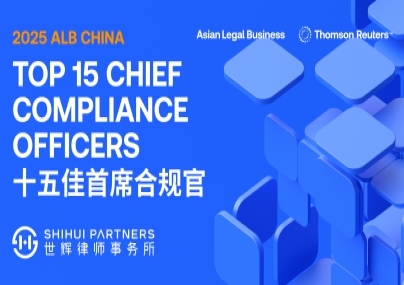汤森路透近日发布最新报告,揭示全球企业合规十大痛点。对美国、英国、欧洲、亚太地区诸多合规人士的调研显示,全球企业在合规关注点上存在许多共性,在监管要求下,合规部门需要用同样(甚至更少)的预算应对更多要求。
环境、社会、治理(ESG)问题:ESG问题难点在于不同国家或地区存在不同的监管策略,企业需要将“因地制宜”的合规费用纳入成本之中。亚太地区在ESG领域的监管已经“追欧赶美”,例如已经出台了环境风险管理政策,并要求企业对环保投入资源、建立内部风险管理框架。此外,监管也开始关注“漂绿”问题,以更好地保护消费者利益。
监管变化并对合规产生新要求:例如美国证监会全面修订了股票交易规则、英国政府通过《爱丁堡文件》对金融监管领域展开大刀阔斧的改革等,都需要合规部门做出回应。
全球政治张力及制裁:俄乌冲突导致一轮轮空前制裁,加重了反洗钱、客户身份审查,以及制裁部门的合规义务。此外中美之间的紧张关系也带来新的压力。
反洗钱及金融犯罪:金融犯罪可能包含很多内容,例如反洗钱监管可能带来的高额罚款,以及对市场滥用、欺诈行为的愈发关注。
恐怖融资:许可使用某项资产、提供金融服务、从事某项金融交易,结果便利了大规模毁坏性武器的贸易,此种风险在当下的冲突年代尤其需警惕。
数字资产及加密货币:法律合规人士尤其需要注意该领域快速的监管变化。中央银行数字货币正得到广泛研究,一旦施行,可能会革新金融体系。澳大利亚、中国内地及香港、新加坡都已展开调研。
关注审计问题:加密货币风险、中美间关于审计问题的争议等使监管愈发关注会计和审计问题,例如是否有效使用了独立外部审计师等。
数据治理及保护:在监管层面,许多司法管辖区都出台了数据规则,监管还在积极探索扩大使用监管性数据。在公司层面,企业需要内嵌治理框架,把公司、政府、客户数据从创造到销毁的全流程管理起来。此外,俄乌冲突使公众关注起“网络战”问题,针对乌克兰的网络攻击甚至造成了全球性损失。
科技、网络安全和人工智能:许多公司开始使用第三方开发的金融科技或人工智能应用,公司本身,尤其金融服务类公司对此类应用程序的控制能力正遭受挑战——大型科技公司有可能借此深入金融服务领域。除了关注内部开发的程序,合规人员还需要特别关注外包性程序的合规问题。
人力资源:2022年《合规成本》调查显示,66%的被调查者认为雇用高级合规人员的费用会增长,因为有技术并且有知识的人才正变得越来越贵。
点击此处下载完整报告。
Thomson Reuters’ new report reveals top 10 global compliance concerns for 2023
Thomson Reuters Institute has published its latest report of 10 Global compliance concerns for 2023, revealing the top pain points of compliance professionals across U.S., U.K., Europe and Asia Pacific region. The report shows that regulators are now requiring that much more be done with the same — and in some cases less — compliance budgets.
Environmental, social, and governance (ESG) issues: ESG is an important issue across the world and each nation has its own regulatory approach. The cost of doing business must include the cost complying with regulations in jurisdictions where business is conducted. The Asia-Pacific region has been playing catch-up and Asian regulators have implemented climate risk management policies, and in turn, they expect firms to have dedicated resources and risk management frameworks. Regulators are particularly determined to tackle greenwashing.
Regulatory change and demands on compliance: for example, the U.S. Securities and Exchange Commission (SEC) has proposed a package concerning significant structural overhaul of the way securities are traded, and the U.K. government has set out an ambitious set of measures to reform its financial regulatory rules through the Edinburgh Reforms.
Global political tensions and sanctions: Russia’s invasion of Ukraine sparked an unprecedented round of sanctions which caused anti-money laundering and know you customer compliance professionals and sanctions departments to go into overdrive to comply. And now there is the escalated tensions between China and U.S.
Anti-money laundering and financial crimes: financial crime can cover a wide range of areas. For example, the large fines related to antimony laundering, and there have been enforcement actions for market abuse during 2022, and fraud is predicted to increase in 2023.
Proliferation financing: financial services firms may also find themselves having to address the risk of proliferation financing, which occurs when an entity makes available an asset, provides a financial service, or conducts a financial transaction to facilitate the proliferation of weapons of mass destruction.
Digital assets & cryptocurrency: investigations, compliance and legal professionals must stay abreast of the regulatory developments. Central bank digital currencies (CBDCs) are being researched by governments around the world and, if rolled out, could revolutionize the financial system.
Increased focus on accounting: accounting practices such as the use of independent external auditors — also a central theme in the crypto failures, and an ongoing battle related to accounting by Chinese companies listed in the United States — have raised the importance of accounting and auditors with regulators.
Data governance & protection: At the jurisdiction level, many countries have data strategies in place, regulators also are keen to explore ways to maximize the use of regulatory data. Data governance also has relevance at firm level, because firms must embed a framework which encompasses all aspects of data governance, from creation to destruction of corporate, governance, and customer data.
Technology, cybersecurity and artificial intelligence (AI): many companies, especially financial services firms, have begun utilizing third-party fintech and AI applications, which poses challenges to the level of control they have of these applications. Compliance officers may therefore need to shift their focus in 2023 from managing internal digital deployment to managing the risks associated with outsourcing such development to third-party service providers.
Human capital: according to the 2022 version of the Cost of Compliance survey, 66% of respondents said they expected the cost of senior compliance staff to increase, nearly half (47%) cited the demand for skilled staff and knowledge as the top reason.
Click here to download the full report.


